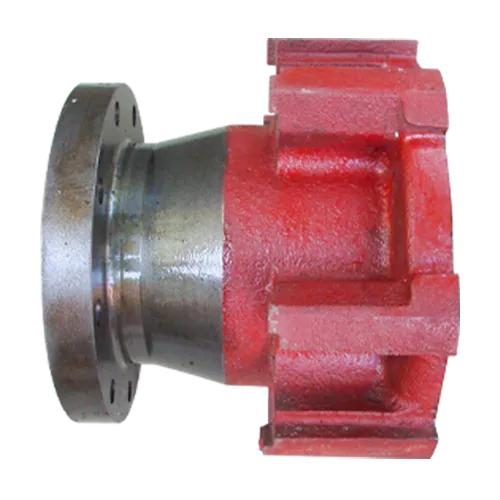Mobile:+86-311-808-126-83
Email:info@ydcastings.com
Advancements in Gravity Casting Techniques for Enhanced Aluminium Alloys Efficiency and Quality Production
Gravity Casting in Aluminium An Overview
Gravity casting, a widely used manufacturing process in the metalworking industry, has gained significant popularity, especially in the production of aluminium components. This casting method harnesses the force of gravity to fill a mold with molten aluminium, creating a wide array of components that are both robust and lightweight. In this article, we will explore the intricacies of gravity casting, its advantages, applications, and the overall impact it has on the aluminium industry.
Understanding Gravity Casting
Gravity casting involves pouring molten metal into a mold under the influence of gravity. The technique can be traced back to ancient metalworking practices, but modern advancements have refined the process significantly. In gravity casting, a permanent mold or a sand mold is utilized, depending on the desired finish and application requirements. As the molten aluminium is poured, it flows into the mold cavities, taking on the shape of the desired component as it cools and solidifies.
Advantages of Gravity Casting
One of the principal advantages of gravity casting is the ability to produce aluminium components with excellent dimensional accuracy and surface finish. Unlike other casting methods, such as sand casting or die casting, gravity casting often requires less machining post-casting. The results are often smoother surfaces, which can translate into better performance in various applications.
Another advantage is the versatility of the method. Gravity casting is suitable for creating both complex geometries and relatively simple shapes, which makes it ideal for a range of industries including automotive, aerospace, and consumer goods. Manufacturers can produce intricate parts with varying thicknesses, ensuring that components meet specific performance standards while maintaining structural integrity.
Moreover, gravity casting is more environmentally friendly compared to other casting techniques, especially when using permanent molds
. Since the molds can be reused multiple times, this not only reduces waste but also lowers material costs in the long run.gravity casting aluminium

Applications of Gravity Casting in Aluminium
Gravity casting has found its niche in numerous industries. In the automotive sector, it’s commonly employed to manufacture engine blocks, transmission housings, and various other components. The lightweight nature of aluminium helps improve fuel efficiency while maintaining strength and durability.
In the aerospace industry, gravity-cast aluminium parts are utilized in both structural components and non-structural elements. Aircraft manufacturers prefer gravity casting for its ability to produce components that withstand high stress while being lightweight.
Additionally, gravity casting is also prevalent in consumer electronics. Many gadgets utilize aluminium casings that are formed via this technique, enhancing product aesthetics while providing durability.
The Future of Gravity Casting in Aluminium
As technology progresses, the gravity casting process continues to evolve. Innovations such as computer simulations and advanced mold designs have improved production efficiency and quality control. Furthermore, the growing emphasis on sustainability and eco-friendly practices is driving the industry towards more efficient casting techniques, positioning gravity casting as a favorable option for many manufacturers.
In conclusion, gravity casting is a vital process in the aluminium manufacturing landscape. Its ability to produce high-quality components with less waste makes it an attractive option for various industries. As the demand for lightweight and durable materials increases, gravity casting will undoubtedly play a significant role in shaping the future of aluminium applications. With continuous advancements in technology and an increasing focus on sustainability, the potential of gravity casting in aluminium is bound to expand, benefiting manufacturers and consumers alike.
-
Understanding Metal Casting TechniquesNewsApr.02,2025
-
Understanding Exhaust Manifolds for Enhanced Engine PerformanceNewsApr.02,2025
-
The World of Metal FabricationNewsApr.02,2025
-
Key Components for Pump and Turbo EfficiencyNewsApr.02,2025
-
Essential Tools for Automotive Maintenance and RepairNewsApr.02,2025
-
Durable Valve Components for Effective Water ManagementNewsApr.02,2025











